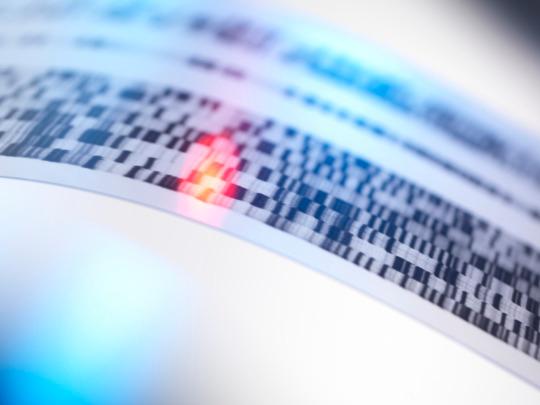Scientists are now one step closer to understanding how genetic mutations contribute to autism. In a study released Thursday in the journal Cell, experts from UNC School of Medicine discovered how one specific autism-linked gene mutation actually works.
This is the first time scientists have observed how a common type of mutation, known as a missense mutation, could contribute to autism.
“There’s a revolution that’s taking place in the area of autism genetics right now,” says study author Mark Zylka, PhD, associate professor at UNC School of Medicine. Thanks to recent advances in technology, it’s now possible to sequence human genomes relatively inexpensively. “From these sequencing studies, thousands of mutations have been turning up in hundreds of genes, and this mutation is one of those mutations,” Zylka tells Yahoo Health.
Specifically, the new finding relates to an enzyme known as UBE3A. Normally, the enzyme is tightly regulated. But Zylka’s team discovered that an autism-linked gene mutation disrupts the on/off switch that controls the enzyme. As a result, the enzyme is constantly on.
In the body, the role of the enzyme UBE3A is to tag other proteins for destruction. “It’s sort of like if you have garbage and you want to get rid of it, you can tag it with a flag for somebody to pick it up and throw it out. That’s essentially what UBE3A does,” Zylka says. The mutation causes the enzyme to tag normal proteins nonstop, which is presumably what leads to autism pathology.
To test their hypothesis that the mutation contributes to autism, the researchers introduced the gene mutation into the brains of mice. The results: Compared to controls, the genetically altered mice showed the same type of brain changes seen in individuals with autism. “Not only was this hyperactivating mutation identified in individuals with autism, when put into a mouse model, it gave a brain pathology that looked like autism,” Zylka says.
It’s important to note that this finding is only one piece of a larger puzzle. Researchers have identified about 1,000 genes related to autism, each of which may play a part in the disorder, which affects 1 in 68 children in the U.S.
Part of the reason the genetics of the disorder are so complex, Zylka explains, is that autism itself is complex. “Sometimes we abbreviate it as ‘someone has autism,’ but clinically, it’s known as autism spectrum disorder. No two kids look completely alike,” Zylka says. “And that probably relates to the fact that there are literally going to be hundreds of different genes that can get you the core symptoms, and when you hit certain genes you’ll get some of the associated symptoms.”
Fuente: www.yahoo.com
